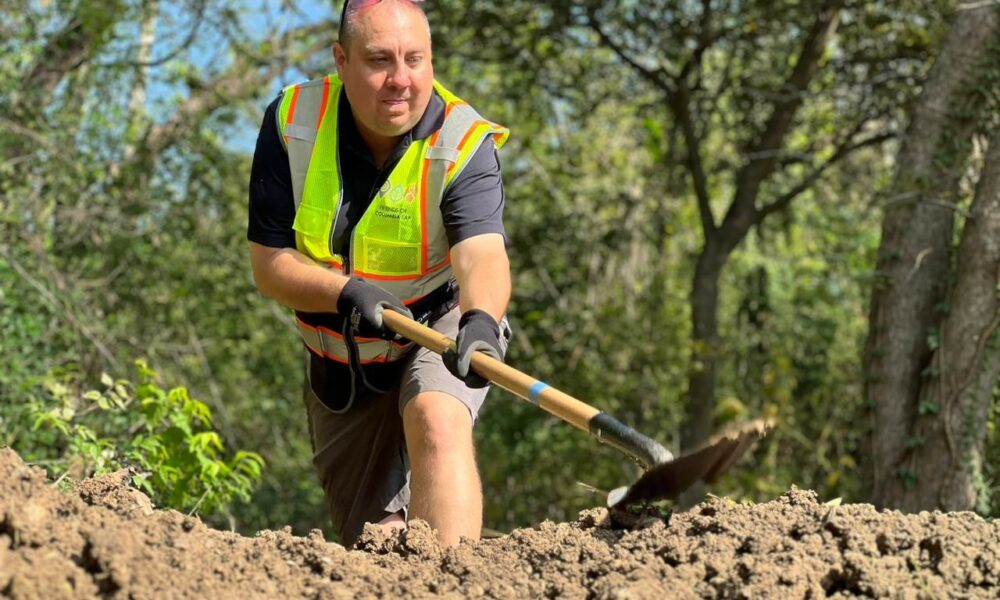

Today we’d like to introduce you to Ed Pettitt.
Hi Ed, we’d love for you to start by introducing yourself.
I’m Ed Pettitt, originally from upstate New York, where I spent my childhood immersed in the outdoors on my family’s rural property along Hopkins Creek. Growing up, I cared for the animals on our small farm and enjoyed various outdoor activities, such as helping my dad chop wood for the winter and creating trails in the woods. We even built a cabin with a wood-burning stove to continue our outdoor adventures during New York’s frigid winters. This early fascination with nature paved the way for my academic and professional journey.
I pursued a major in biology at Cornell University, delving into the interdisciplinary field of human ecology and gaining insights into the interconnectedness of environmental, animal, and human health – now commonly known as the “One Health” approach. Following my undergraduate studies, I joined the Peace Corps and served as a Health and HIV/AIDS volunteer in a remote village in the Kalahari Desert in Botswana, among the San people. This experience allowed me to appreciate the hidden ecological diversity of arid environments, exploring the Central Kalahari Game Reserve on the ancestral lands of the San people.
Subsequently, I relocated to Gaborone, Botswana’s capital city, working with a pediatric clinic initiated by Baylor College of Medicine and Texas Children’s Hospital. Eventually, Baylor recruited me to move to Houston, where I continued my work in global health and pursued a Master’s of Public Health degree at the University of Texas School of Public Health. I eventually settled in Third Ward, near the Columbia Tap Trail, Project Row Houses, and Emancipation Park, captivated by the community’s social cohesion and neighborliness.
While observing changes in the neighborhood’s architecture, transitioning from traditional homes to front-loading townhomes, I recognized the impact of the built environment on social, mental, and physical health and started volunteering with community-building initiatives like Complete Communities, Park-Smart Precinct One, and the Emancipation Economic Development Council. I also founded a community-based organization called Friends of Columbia Tap to advocate for mobility, sustainability, and connectivity improvements along the trail. Motivated by these insights and pursuits, I decided to use my free time during the pandemic to pursue a doctorate in urban planning and environmental policy at Texas Southern University. The proximity of TSU and its location along the Columbia Tap Trail, and its esteemed faculty like Dr. Robert Bullard, the father of environmental justice and founding director of the Bullard Center for Environmental and Climate Justice, further fueled my commitment to this current phase of my academic pursuit.
Can you talk to us a bit about the challenges and lessons you’ve learned along the way? Looking back, would you say it’s been easy or smooth in retrospect?
Community organizing is a complex task, and one major challenge is getting residents actively involved. I completely understand why some people are hesitant to attend meetings, especially considering the time commitment involved. To speak at the City Council’s public comment session, you practically need to block off your entire afternoon, unsure of when you’ll be called on the list. Evening civic club meetings also pose challenges for many due to family responsibilities, childcare, or evening work shifts.
When I took on the role of Vice President of the Greater Third Ward Super Neighborhood #67, I noticed a sense of apathy and intimidation among residents. Speaking with my older, wiser neighbors revealed a history of the City ignoring their complaints about issues like illegal dumping or missing sidewalks. Additional frustration stemmed from the fact that other decisions, such as installing new bike lanes, were made without considering residents’ opinions.
Given the formality of civic meetings, some residents disliked the rigid agenda and the recording of remarks on Zoom calls or meeting minutes. In response, I initiated informal Community Coffee Chats at Doshi House cafe on Emancipation Avenue in December 2022. The popularity of these meetings forced us to move to a private room, often with standing room only. Recognizing the transportation challenges faced by residents at places like Cuney Homes, Houston’s largest public housing complex, we started walking with them an hour before the meeting started to ensure everyone had access to the discussions.
Our efforts have not been without obstacles. Even with mobilized residents, it remains difficult to make the municipal powers listen. Unanswered emails, tokenistic engagement, and ad hominem attacks from public officials have become unfortunately common. I and another resident uncovered a scandal at the Midtown Redevelopment Authority, exposing their Real Estate Manager who was stealing affordable housing funds by syphoning landscaping payments into his own company. Though many municipal leaders called us liars or worse, we persisted until the Office of Inspector General confirmed our suspicions.
Advocacy of this nature comes with its share of challenges, including personal attacks. However, the support from my neighbors and fellow residents keeps me motivated and determined to make a positive impact.
Appreciate you sharing that. What should we know about Friends of Columbia Tap?
Friends of Columbia Tap was founded with a mission to create a more connected, equitable, and prosperous community along the Columbia Tap Trail, particularly within the Historic Third Ward community. Recognizing the historical significance of the trail, which was once the Houston Tap and Brazoria (HT&B) Railway – built by enslaved people to transport sugar and cotton from the town of Columbia in Brazoria County onwards to Houston and the Port of Galveston – we aim to transform it into a multi-use trail and linear park serving as a historical, cultural, and recreational amenity.
The Columbia Tap Trail has a complex history, initially neglected and subject to environmental racism. However, residents took initiative in 1986, cleaning up a section and establishing the Texas AIDS Memorial Garden. In 1999, the City of Houston acquired the railway corridor, leading to the development of the Columbia Tap Hike and Bike Trail.
Our current goals involve working on a Comprehensive Action Plan in collaboration with the University of Houston Community Design Resource Center. This plan aims to create a vision for parks, open spaces, trails, housing, economic development, and community amenities along the trail. Through an inclusive community-driven design process, we seek to develop actionable projects and priorities.
We are currently petitioning the Houston Parks and Recreation Department (HPARD) to officially recognize us as a parks partner. This recognition would acknowledge our long-term engagement with the Columbia Tap Trail since 2017, when we started working on various initiatives, including trailhead kiosks, wayfinding signage, Dakota’s Peace Grove, a pocket park, and lighting infrastructure planning, and restoration of the Texas AIDS Memorial Garden.
Our funding partners, including Complete Communities, Houston Parks Board, LISC Houston, Rotary Club of Houston Skyline, and others, have enabled us to raise substantial funds for the Columbia Tap Trail. We’ve also formed a diverse 15-member steering committee comprising community leaders, historians, artists, academics, entrepreneurs, and faith leaders.
Friends of Columbia Tap is an outgrowth of the SN67 Parks and Neighborhood Character Work Group, emerging from the City of Houston’s Complete Communities Initiative in 2017. Our dedication aligns with the Third Ward Complete Communities Action Plan, aiming for a healthier, more resilient, prosperous, and equitable community.
One key objective of this plan is to transform the Columbia Tap into a “cultural trail.” Initiatives like trailhead maps and historical interpretive signage, along with events like the annual 3rd Ward on Tap festival, have invigorated local interest in the trail.
Our unwavering dedication and advocacy, alongside our partners, strive to turn the trail’s history of neglect and environmental racism into a hopeful future. We envision a trail that serves as a historical, cultural, and recreational asset for the Third Ward community and Houston visitors, providing a safe and accessible route for outdoor activities.
Any big plans?
I’m excited to share our ambitious plans for Friends of Columbia Tap’s future endeavors. We are eagerly anticipating the third annual 3rd Ward on Tap festival scheduled for Saturday, March 16th, from 10 am to 2 pm at Cuney Homes. This festival will mark the launch of a new pocket park along the Columbia Tap Trail at Cuney Homes, as well as the initiation of a community garden.
In collaboration with the Bullard Center for Environmental and Climate Justice at Texas Southern University, we are also looking forward to hosting an affordable housing and economic development workshop. Simultaneously, we aim to develop an affordable housing dashboard, providing residents with easy access to housing opportunities. These initiatives align with our commitment to fostering a connected, equitable, and prosperous community.
We will remain active in policy advocacy, including pushing for an amendment to the interlocal agreement between the City of Houston and the Houston Parks Board to include the Columbia Tap Trail in the implementation of the Beyond the Bayous initiative. This aligns with our overarching mission and the Third Ward Complete Community Action Plan, with the goal of transforming the trail into a cultural trail and expanding park space in the Third Ward.
Over the past six years, we have persistently petitioned Houston Public Works, urging the designation of the Columbia Tap Trail as a linear park and African-American heritage trail. We believe this designation is essential for accessing federal funding opportunities, particularly through the Justice40 qualified funding, given Third Ward’s status as a disadvantaged community.
Leveraging federal funding opportunities provided by the Bipartisan Infrastructure Law and Inflation Reduction Act for transportation projects is another key focus. By positioning the Columbia Tap Trail as part of the Beyond the Bayous initiative, we aim to highlight its potential to address transportation needs in underserved communities while promoting sustainability.
Our comprehensive set of recommendations for improving the Columbia Tap Trail covers safety measures, connectivity improvements, aesthetic enhancements, sustainability initiatives, art and culture integration, health considerations, and consistent maintenance practices. These proposed improvements aim to make the trail safer, more accessible, visually appealing, and sustainable, contributing to the well-being and connectivity of the community.
We also address funding inequalities in the Parks and Open Spaces Ordinance, emphasizing the need for amendments to rectify disparities between predominantly white and predominantly Hispanic and African-American park sectors. This includes making fund allocations public to ensure transparency and accountability.
In collaboration with Houston Advanced Research Center (HARC) and the American Society of Adaptation Professionals (ASAP), we are actively engaged in the Leading with Equity in Adaptation Practice (LEAP) initiative. This initiative focuses on addressing the climate resiliency needs of Houston’s Third Ward, considering community assets like the Columbia Tap Trail and the redevelopment of Cuney Homes. Our approach involves a Technical Advisory Panel (TAP) Report with strategies for sustainable urban design, policy advocacy, and tailored energy solutions, aiming for improved community well-being, environmental and energy justice, resilience, equitable development, and alignment with global climate action goals.
Despite potential obstacles, such as limited resources and potential resistance to change, we remain committed to seeking grants fostering community engagement, collaboration, and data-driven policy advocacy. Our approach emphasizes a well-informed and context-specific strategy to ensure the success of our initiatives in promoting the well-being, sustainability, and environmental justice of the Columbia Tap Trail and the Third Ward community.
Contact Info:
- Website: www.friendsofcolumbiatap.com
- Instagram: https://www.instagram.com/friendsofcolumbiatap/
- Facebook: https://www.facebook.com/friendsofcolumbiatap/
- Linkedin: https://www.linkedin.com/in/edpettitt
- Twitter: https://twitter.com/ColumbiaTap
- Youtube: https://www.youtube.com/channel/UChXQnLgzpYqqRiwYhf1MFMA
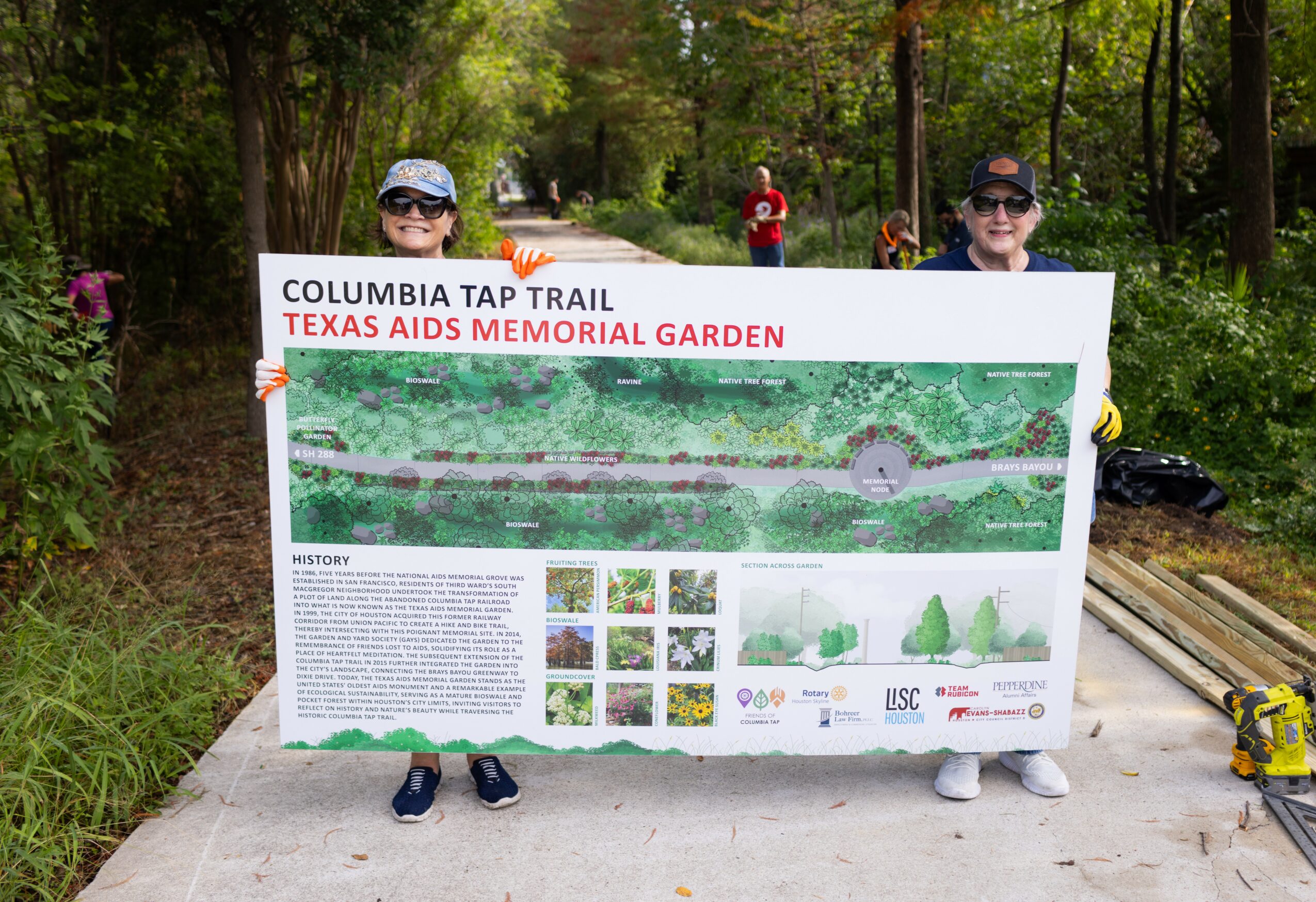
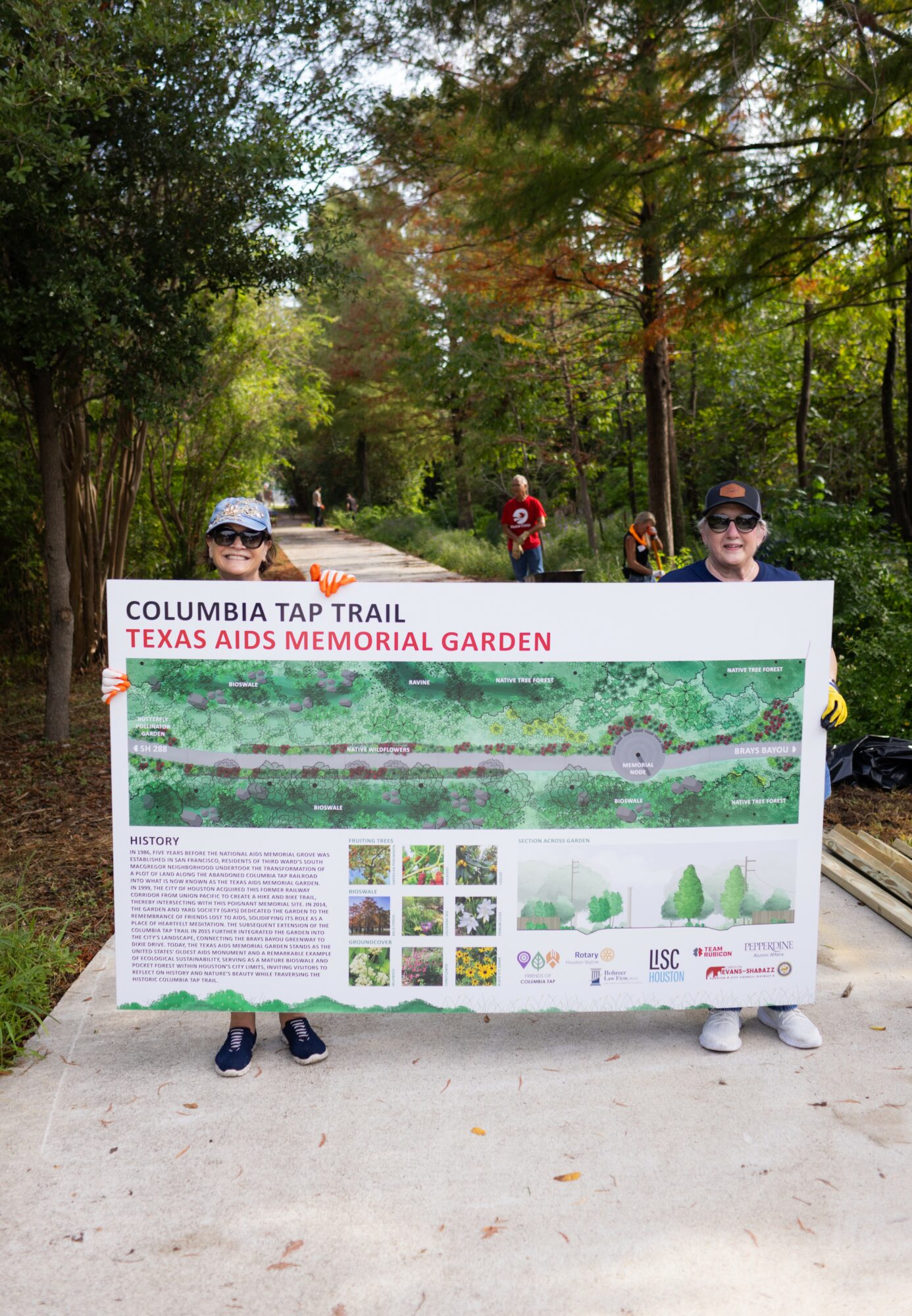
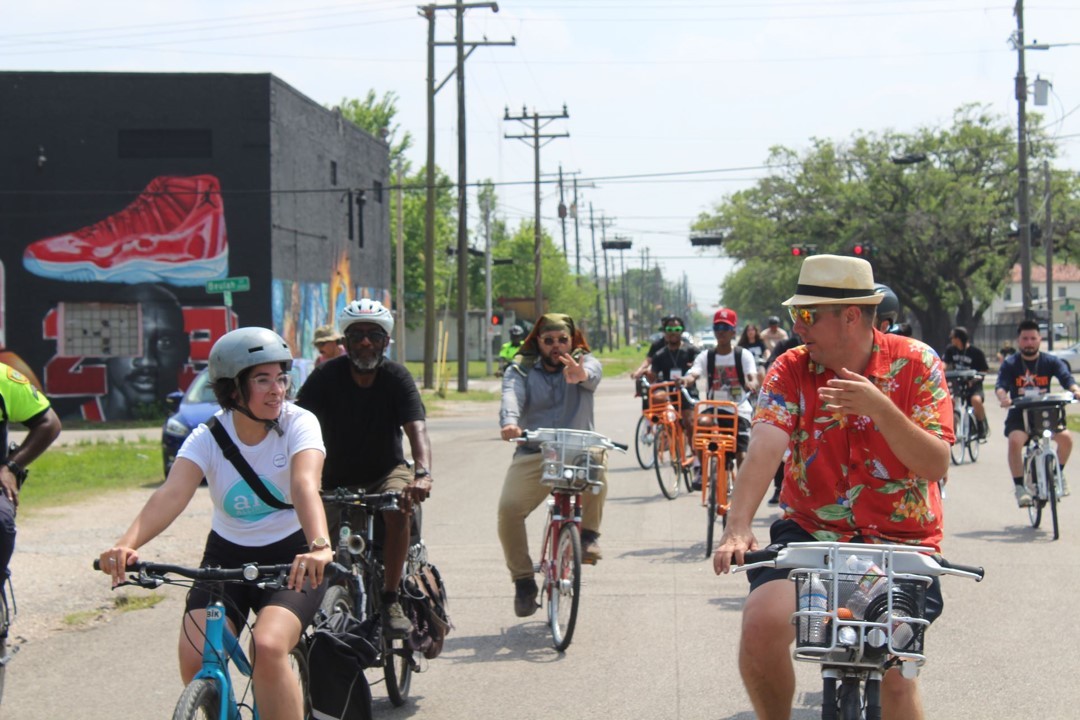
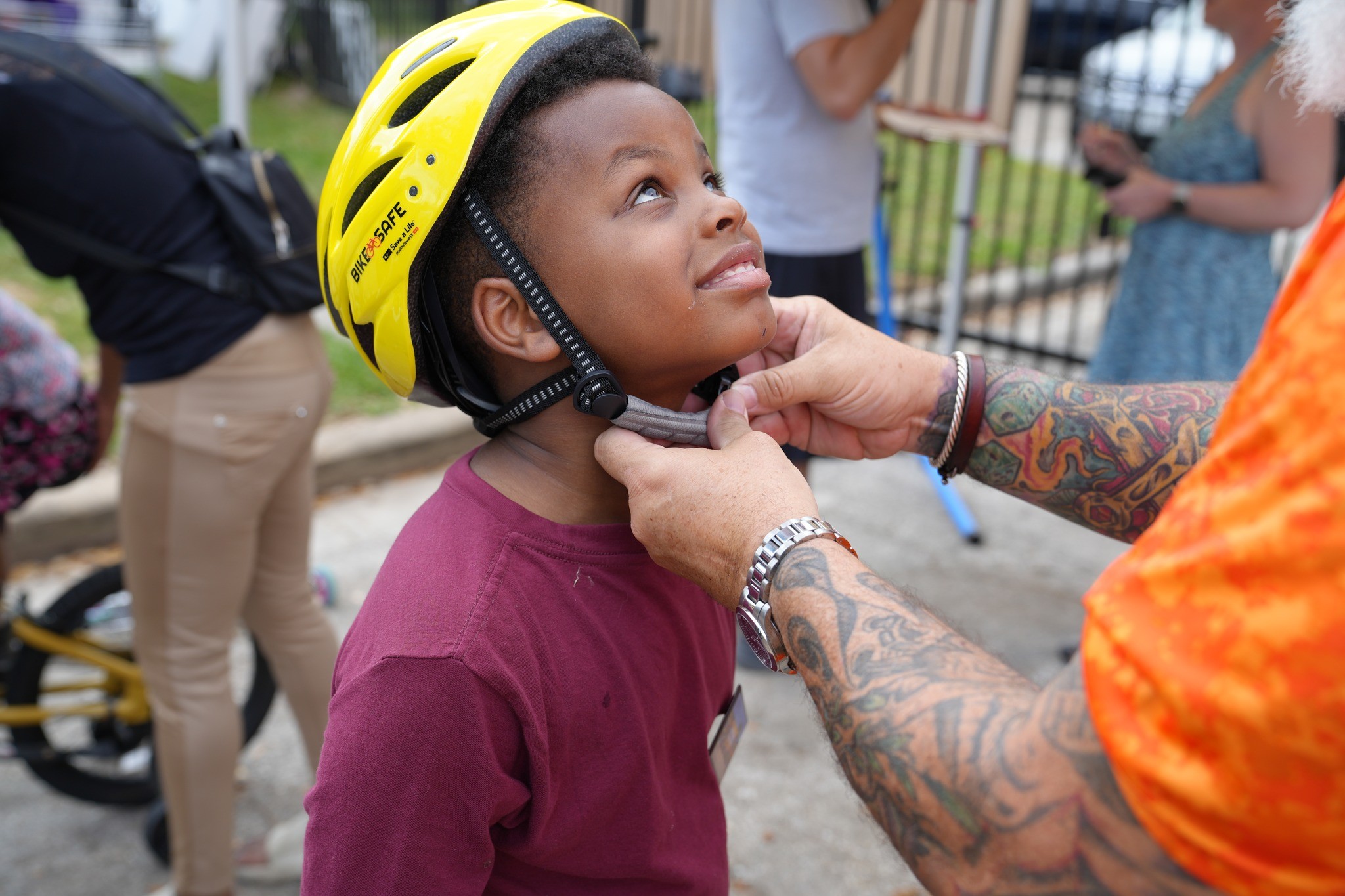
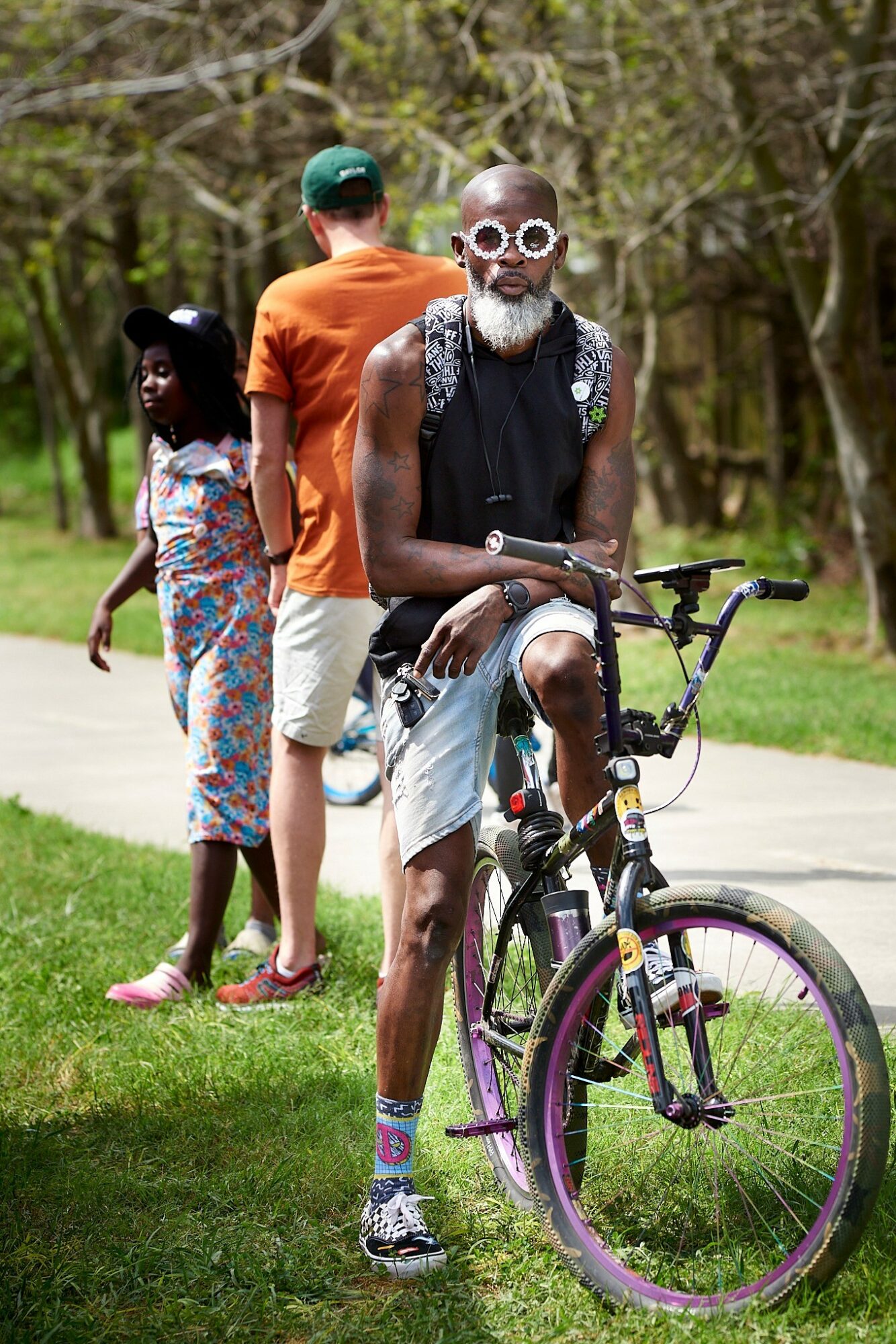
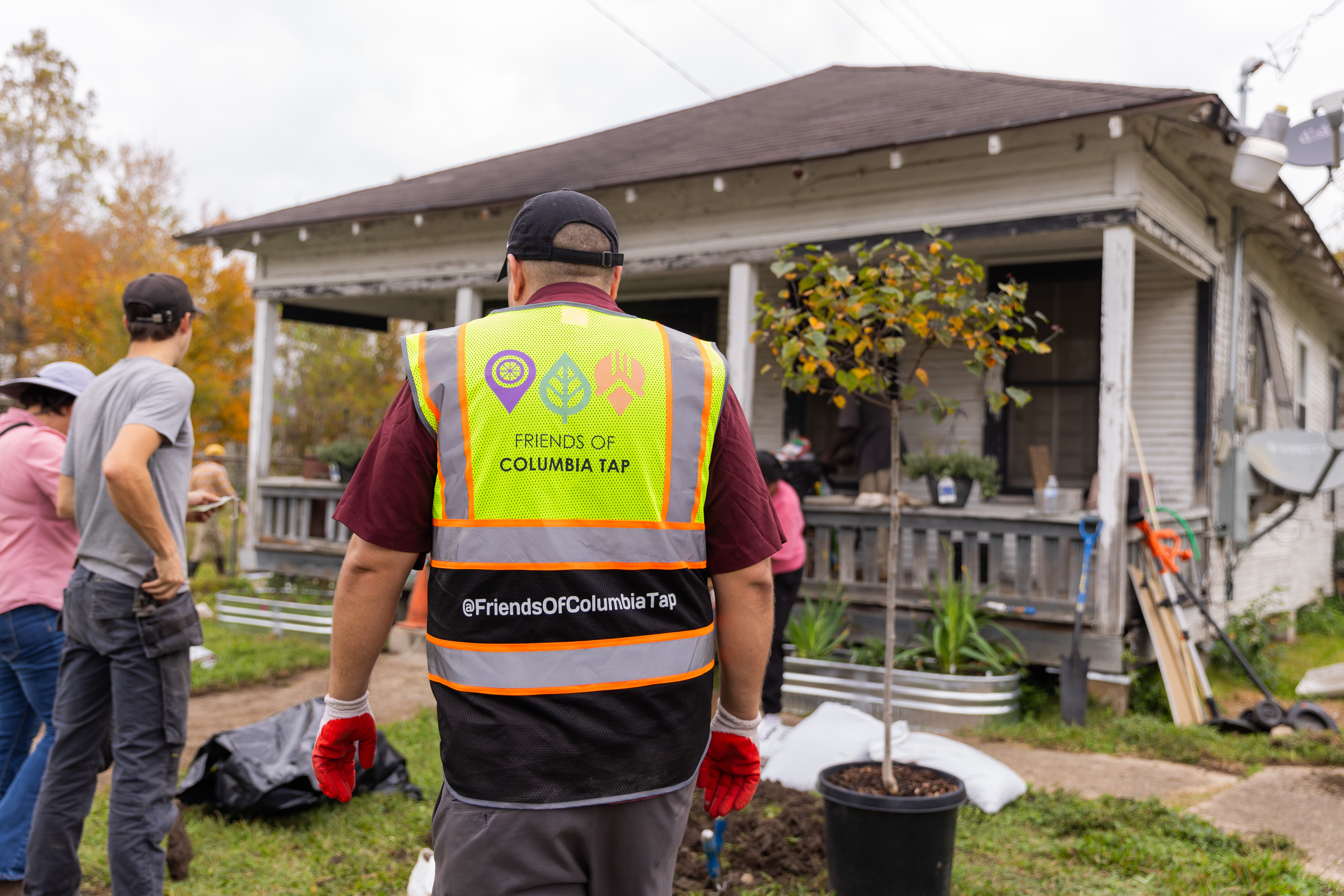
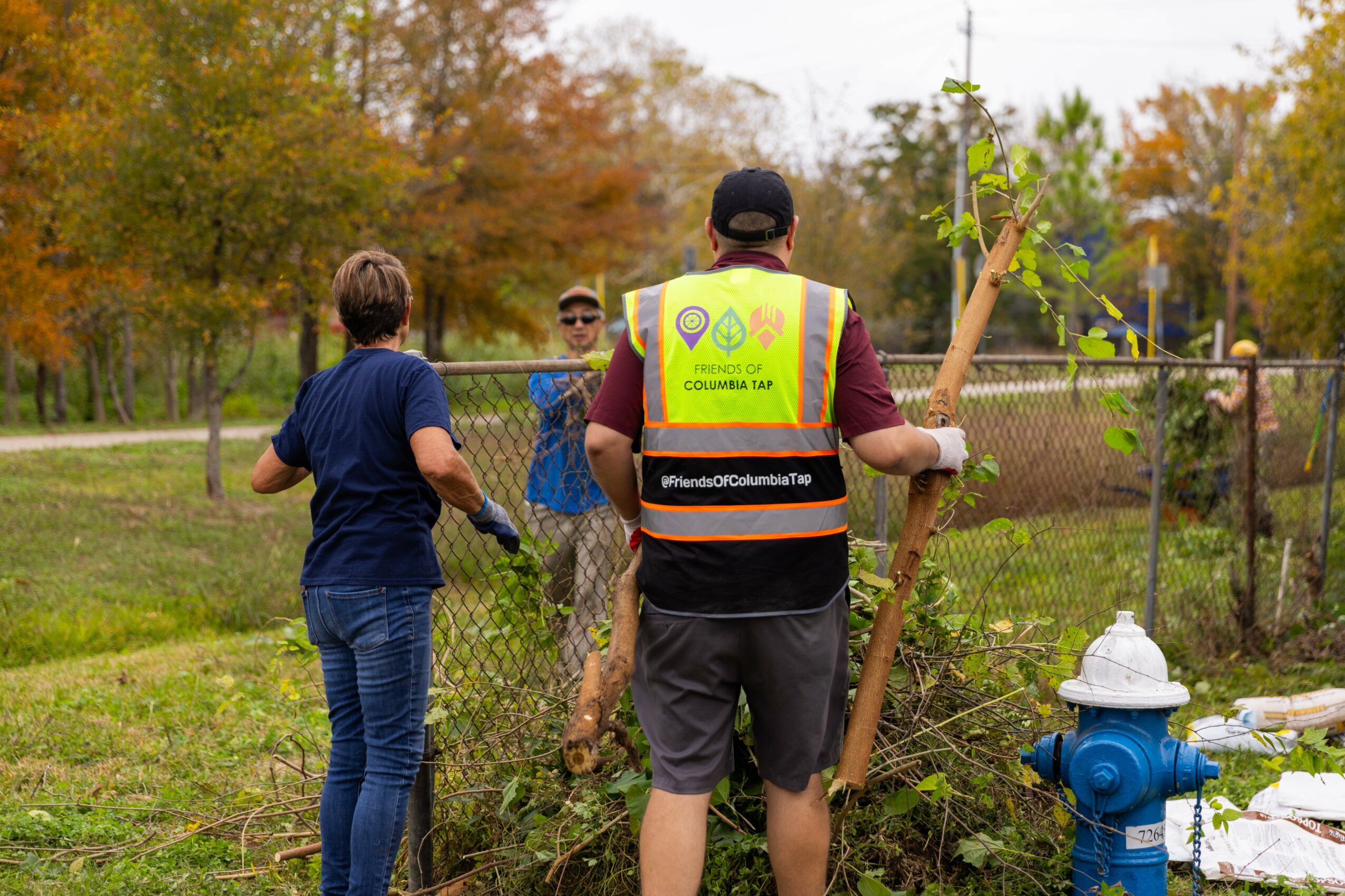
Image Credits
Corey Hanks
William Santee
Diyar Talal
Houston Housing Authority










